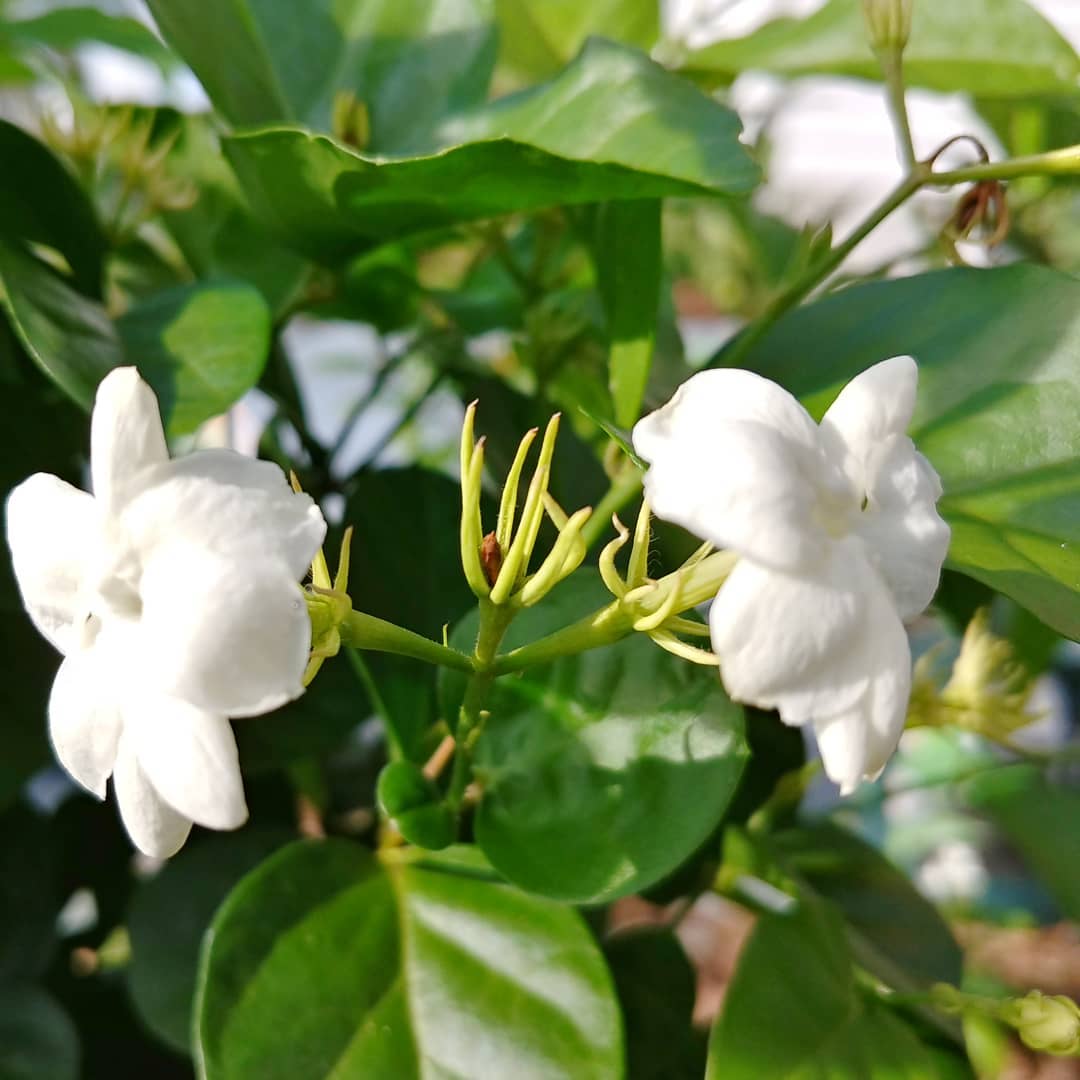Explore Sambac Jasmine, a highly fragrant flowering plant prized for its delicate blooms and cultural significance. Learn how to grow and care for this aromatic beauty, perfect for adding intense fragrance to your garden or home.
Discover the exquisite charm of Sambac Jasmine, a highly prized flowering plant renowned for its intoxicating fragrance and delicate beauty. This beloved jasmine variety has captivated gardeners and perfumers alike for centuries.
Here’s the information about Sambac Jasmine in an easy-to-understand chart format:
AspectDetailsBotanical NameJasminum sambacCommon NameSambac Jasmine, Arabian JasminePlant ZoneZones 9-11Sun ExposureFull sun to part shadeSoil TypeWell-drained, loamy soilWatering NeedsRegular, keep soil consistently moist but not waterloggedGrowth HabitEvergreen, vining or shrubbyHeight/Spread5-10 feet tall, spreads 3-6 feetBloom TimeYear-round in tropical climates, summer in temperate zonesFlower ColorWhiteSpecial FeaturesHighly fragrant flowers; used in perfumes and teas; can be grown as a houseplant in cooler climates; attracts pollinators
What is Sambac Jasmine?

Sambac Jasmine, scientifically known as Jasminum sambac, is an evergreen shrub or vine that produces small, white, intensely fragrant flowers. It’s also known as Arabian Jasmine or Mogra.
Origin and Characteristics
Native to southern Asia, Sambac Jasmine has been cultivated for thousands of years. Key features include:
- Glossy, dark green leaves
- Highly fragrant, white flowers that often turn pink as they age
- Compact, bushy growth habit
- Year-round blooming in tropical climates
How to Grow Sambac Jasmine
Planting
- Choose a location with full sun to partial shade
- Ensure well-draining, rich soil
- Plant in spring after the last frost
- Space plants 3-4 feet apart
Care Tips
- Water regularly, keeping soil consistently moist but not waterlogged
- Fertilize monthly during growing season with a balanced, water-soluble fertilizer
- Prune lightly after flowering to maintain shape and encourage bushiness
For detailed care instructions, visit the Missouri Botanical Garden’s plant finder.
Uses in the Garden
- Fragrant Hedge: Create a sweetly scented boundary or screen.
- Container Plant: Perfect for patios, balconies, or indoor cultivation.
- Trellis Climber: Train it up supports for vertical interest.
- Accent Plant: Use as a focal point in sensory or tropical gardens.
Benefits of Sambac Jasmine
- Intense Fragrance: Adds a powerful, sweet scent to gardens or indoor spaces.
- Attracts Pollinators: Fragrant flowers draw beneficial insects.
- Cultural Significance: Important in many Asian cultures for religious and cultural practices.
- Culinary and Medicinal Uses: Flowers are used in teas, perfumes, and traditional medicine.
Common Issues and Solutions
- Cold Sensitivity: Protect from frost. Consider greenhouse cultivation in colder regions.
- **Yellowing Leaves: **Often due to overwatering or poor drainage. Improve soil drainage if needed.
- Pests: Watch for spider mites and mealybugs. Treat with insecticidal soap if necessary.
For more information on plant health, consult the USDA’s National Institute of Food and Agriculture.
Interesting Facts
- Sambac Jasmine is the national flower of the Philippines, where it’s known as Sampaguita.
- In India, it’s often used in religious ceremonies and to make fragrant garlands.
- The flowers are used to flavor jasmine tea, a popular beverage in many Asian countries.
Sambac Jasmine offers an unparalleled combination of intense fragrance and delicate beauty. Its cultural significance, versatility in the garden, and potential for year-round blooming make it a prized addition to any suitable landscape. Whether you’re creating a fragrant garden, looking for a special container plant, or simply want to enjoy one of nature’s most intoxicating scents, Sambac Jasmine is an excellent choice.
For more gardening tips and plant care guides, visit usagardenhub.com.

